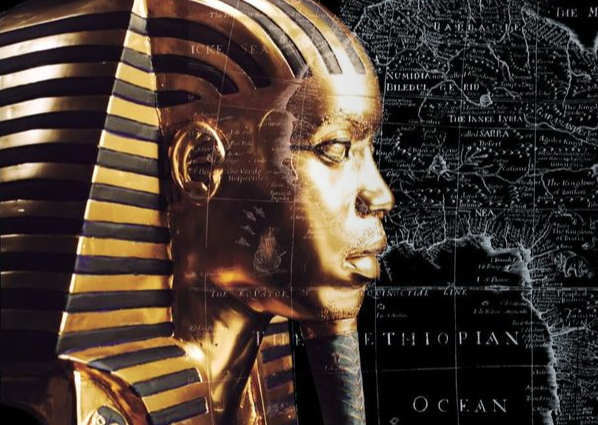The Pharoahic image of Nas, which appears on his I Am LP cover, has been receiving an onslaught of negative criticism in a Dutch art exhibition, with the Queensbridge legend being depicted as King Tutkenhamun.
The image has been shown in the Dutch National Museum of Antiquities recently opened exhibit called “Kemet: Egypt in Hip-Hop, Jazz, Soul and Funk,” which explores the connection between Egyptian culture and Black music. David Cortes’ statue, which is titled “I Am Hip-Hop,” shows Nas as King Tut, sending many critics into a frenzy for daring to depict Egyptians as Black people.
An Egyptian antiquities expert the museum, claiming that it made a “grave mistake by insulting Egyptian civilization by portraying Tutankhamun as Black.”
Museum director Wim Weijland had to go as far as defend the exhibit after receiving the immense amount of criticism, saying that while the Kemet exhibit “does not have an Afrocentric perspective on ancient Egypt” but it does help to “critically examine ideas presented in Black music.”
Weijland said in his statement, “The exhibition does not claim the ancient Egyptians were Black, but explores music by Black artists who refer to ancient Egypt and Nubia in their work: music videos, covers of record albums, photos, and contemporary artworks. This music often reflects on the Black experience in the West and tells stories about the African diaspora and pre-colonial Africa, including ancient Egypt.”
He added, “The exhibition explains that the representations of ancient Egypt are imaginaries: artistic interpretations of ancient Egypt, not realistic images of ancient Egyptians. For example, the exhibition contains a modern sculpture that represents the musician Nas, modeled after the mask of Tutankhamun. The exhibition explains that it is a contemporary artwork, not a replica. The exhibition explains why and when it was made and clarifies that it is not an ancient Egyptian artifact.”
Source link

